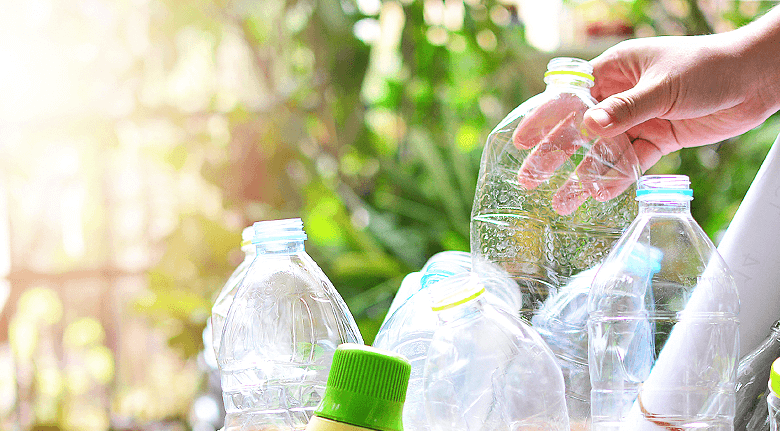When we think about packaging, plastic is the first word that crosses our minds. But is it eco-friendly and food-safe? We all know the answer to that. But do we know why? Plastic releases toxic substances such as bisphenol that – if transferred from the plastic to products – can cause reproductive problems and many other health issues.
That’s why we should choose plastic-free packaging materials, wherever possible, as they are excellent at keeping food fresh and nutrition-rich and do not harm either us or the environment. Also known as smart packaging, it aims to extend food shelf life, maintain freshness for a long duration, and improve product and customer safety.
Our life long companion- plastic packaging- is omnipresent but it is decreasing our shelf life and that of our planet. Are we exaggerating? Let’s find out.
Cons of Plastic Packaging
Let’s understand why should we switch to better alternatives:
Increase in Carbon Footprint: Manufacturing plastic – every step right from production to decomposition – produces greenhouse gas emissions contributing to climate change, carbon footprint, and global warming.
Difficult to Dispose of: Plastic packaging material is hard to dispose of and takes decades to recycle. It does not decompose even if it remains underwater indefinitely, posing a great threat to marine ecosystems.
Full of Allergens and Toxins: Packing food items in plastic for a long duration may lead to cancer development and many other skin issues due to chemicals such as polyethylene terephthalate.
Tarnishes Brand Image: Plastic packaging label leaves a bad impression on nature-friendly customers. Eco-friendly packaging displays that the company values the importance of Mother Earth.
Learning about these disadvantages, you might want to divorce plastic packaging. But how can you go about it and make it a clean break?
At this point, going plastic-free is a distant dream especially when it is omnipresent and fewer eco-friendly alternatives are available in the market. Therefore, using and discarding it responsibly should be our top priority.
Responsible Usage & Disposal of Plastic
This is the right time for us to bring small changes in the using and dumping patterns. Some of the suggested changes are:
- We should carry our reusable bags while going shopping
- Wherever possible, we should start storing water in glass bottles
- Recycling plastic containers, cans and bricks
- While going on an excursion, make it a standard habit to bring back empty water plastic bottles or wrappers instead of discarding them in water or on the land.
- Crushing water bottle after every usage so that it cannot be reused
- Not mixing them with wet waste; storing them separately instead
- Handover plastic waste to registered plastic agents or companies
Using and disposing of plastics responsibly is like winning a half battle. For winning the battle completely, our next step should be making a switch to biodegradable plastics.
Switch to Biodegradable Plastic
Food packaging trends have changed drastically over the last few years. As consumers are keen to go green, even companies are making every possible effort to offer them fresh produce by using biodegradable packaging materials.

Biodegradable packaging comprises biopolymers and is considered safe for the human body. Created from waste plant products, the packaging material has minimal or no negative effect on the environment. It even degrades quickly. Slightly expensive yet sustainable, biodegradable packaging is the best to use for vegetables like tomatoes and leafy vegetables.
Responsible Packaging by Gourmet Garden
Most e-grocery brands use cartons or boxes as packaging types for supplying vegetables from one place to another. Gourmet Garden, on the other hand, uses biodegradable packaging for vegetables with high water content and paper bags to pack dry vegetables. By adopting sustainable farming practices, it aims at maintaining the quality of food, retaining their freshness and flavours, and preventing health-related worries. Of course, the packaging cost is high initially, but it saves money in the long run by requiring lesser materials for manufacturing and reducing the number of cancelled orders due to poor quality.
The cherry on the cake is the biodegradable packing cover used by Gourmet Garden – it contains enzyme-coating and patented d2w additives, which disintegrate within nine months of manufacturing. Consumers are free to process the recyclable covers at their end. And, if they fail to do so (or have no idea how to do your bit), they can hand over the covers to the company’s delivery partners with their next order.
Metals (copper, aluminium and copper), paper and cardboard, glass and flexible plastic films are the most common packaging materials used by e-grocery brands. But Gourmet Garden is winning the hearts of customers by adopting smart packaging techniques and going the extra mile by keeping food safe and fresh for a longer duration.
Bring the Change You Want to See
Companies such as Gourmet Garden have realised the threat posed by plastic to the stored food items, the environment, and humankind. Thus, it has decided to do its bit and contribute to the future of the planet by introducing biodegradable materials for packaging fruits and vegetables. These materials preserve their freshness and extend their longevity and nutritional value.

